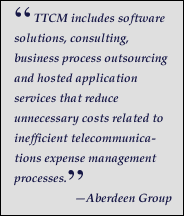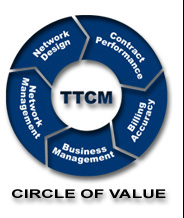




TTCM Savings Area:
Contract Performance
Published In: Volume
3 Issue 4
Date: September,
2004
|
Going through
the exhaustive process of selecting a telecom vendor is challenging.
And when you've finally settled on which vendor you'll be acquiring
services from and why, you still are faced with the responsibility
to develop the formal agreement. That's when mistakes can really
be costly. Most of the time, the vendor will submit the initial contract to the client, hopefully (but seldom) with the pricing you expect, based on your just completed RFP and/or negotiation. But even if the pricing is wrong, if you've kept good notes, correspondence and bids, you know when something has changed and can correct it.
Now it's time to look at the other contract elements. Reading the contract will likely cause a number of points to jump out, and experienced telecom/contract managers will often spot them right away. Full term auto-renewals, excessive shortfall penalties, improper order of precedence and other punitive language is quickly removed or negotiated down. Now it's time to look at the other contract elements. Reading the contract will likely cause a number of points to jump out, and experienced telecom/contract managers will often spot them right away. Full term auto-renewals, excessive shortfall penalties, improper order of precedence and other punitive language is quickly removed or negotiated down. Before you review a contract, make a list of everything you feel should be covered, and what you expect that term to convey. You likely have some very experienced contract administrators in your firm that can help you assemble this list. At TelAssess, for example, we maintain a list of 137 points we look for on every contract, grouped into seven key categories:
First, go through the vendor-supplied contract, matching its terms with your list. As you review each point, mark it off on your master checklist as either acceptable, or needs modification. That helps you review what's already in the contract, and spot the glaring issues.
Now go the other direction, using your master list as a check for the error of omission. Anything that isn't checked could well be a gap in your agreement that needs to be filled. This exercise is usually very revealing, and most companies will be surprised at just how many critical points never get addressed. The net result of this double walkthrough is the development of a contract that not only weeds out the bad elements that the vendors included, but also adds in a number of important items they excluded. And those may be the most important items of all.
Contract areas that are seldom addressed by the vendor if you haven't raised them first can be related to pricing, SLAs, service volumes and other areas. Here are just a few items (from a very long list) we consider important to add into every deal.
©2004,
TelAssess, Inc. All rights reserved. |
![]()
©2004, TelAssess 800.657.1595
Designed by Stylus
Designs

